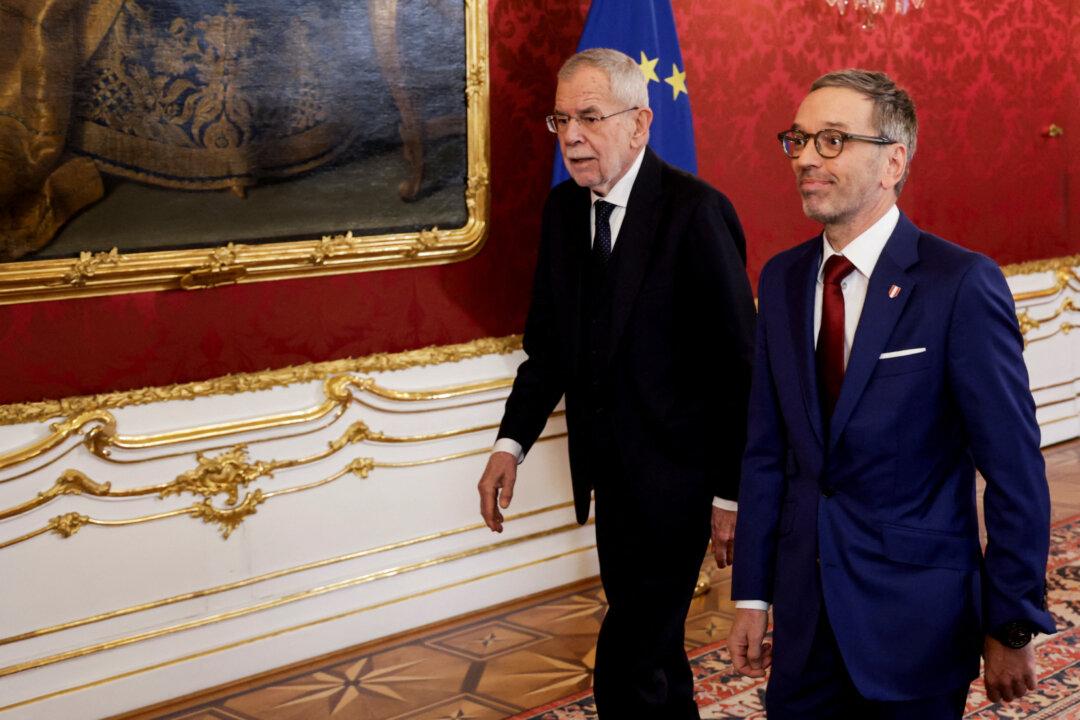Austria’s Freedom Party received a mandate to form a new government from the nation’s president on Jan. 6.
The right-wing anti-immigration and euroskeptic Freedom Party, led by Herbert Kickl, won the country’s parliamentary election in September 2024, taking 28.8 percent of the vote, knocking Chancellor Karl Nehammer’s conservative Austrian People’s Party into second place.





